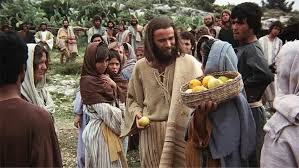Throughout history, the Bible has been a guiding source for many individuals, offering wisdom and direction on how to live a life full of compassion, love, and generosity. One of the most important themes in the Bible is the call to care for the poor and those in need. Whether through charity, kindness, or justice, Scripture paints a clear picture of how believers are to approach poverty and help the underprivileged in society.
1. God’s Heart for the Poor
The Bible shows us time and time again that God has a special concern for the poor and the marginalized. In the Old Testament, God consistently speaks out against injustice, particularly when it comes to the mistreatment of the poor. One example is found in the book of Proverbs:
“Whoever is kind to the poor lends to the Lord, and he will reward them for what they have done.” – Proverbs 19:17
This passage suggests that showing compassion to the poor is not just an act of kindness; it’s an act of faith. By helping those in need, believers are ultimately serving God Himself. The idea of lending to the Lord reinforces the deep spiritual significance of assisting the poor—it is a way of participating in God’s work on earth.
2. Jesus’ Teachings on Helping the Poor
Jesus, in His ministry, frequently highlighted the importance of helping the poor. His actions and parables often focused on giving, sharing, and caring for those in need. One of the most famous passages about helping the poor comes from Matthew 25:34-40, where Jesus says:
“For I was hungry and you gave me something to eat, I was thirsty and you gave me something to drink, I was a stranger and you invited me in, I needed clothes and you clothed me… whatever you did for one of the least of these brothers and sisters of mine, you did for me.” – Matthew 25:35-40
Here, Jesus makes it clear that when we care for the poor, we are also caring for Him. The poor and needy are not only human beings deserving of compassion but are also representations of Christ’s own vulnerability. In this light, helping those in poverty is not merely a charitable act but a form of worship.
3. The Parable of the Good Samaritan
Another powerful story about caring for others is the Parable of the Good Samaritan (Luke 10:25-37). In this parable, a man is attacked and left for dead on the side of the road. A priest and a Levite pass by without offering help, but a Samaritan—an individual from a group traditionally despised by the Jews—stops, tends to the man’s wounds, and ensures he is cared for.
The Good Samaritan’s actions remind us that the call to help the poor and needy transcends social boundaries. It’s not about who deserves help, but about showing love and compassion to anyone in need, regardless of their background, race, or status. This parable teaches us that true love involves actively reaching out to those in distress, even when it is inconvenient or uncomfortable.
4. Generosity and Justice: Old Testament Insights
The Old Testament is filled with commands and teachings on caring for the poor. One significant example is the concept of the “Year of Jubilee,” described in Leviticus 25. Every 50 years, all debts were forgiven, land was returned to its original owner, and any Israelites who had fallen into poverty were given a fresh start. This idea reflects God’s justice and concern for equity—ensuring that no one was permanently trapped in poverty due to circumstances beyond their control.
In addition, the Law of Moses instructed farmers to leave some of their crops in the fields for the poor to gather. In Leviticus 19:9-10, God commands:
“When you reap the harvest of your land, do not reap to the very edges of your field or gather the gleanings of your harvest. Leave them for the poor and the foreigner.” – Leviticus 19:9-10
This practice, known as “gleaning,” ensured that those in need had access to food. It was not just about charity; it was about creating a system that actively involved the poor in society, allowing them to gather what they needed to survive with dignity.
5. The Widow’s Mite: A Lesson in Sacrificial Giving
In Mark 12:41-44, Jesus observed a poor widow who put two small coins into the temple treasury. Though her contribution seemed insignificant compared to the large donations of the wealthy, Jesus commended her for giving all she had to live on. This story is a powerful reminder that the value of a gift is not measured by its size, but by the heart and sacrifice behind it.
Jesus’ praise of the widow encourages us to give generously and sacrificially, regardless of the size of our own resources. It reminds us that helping the poor is not about how much we give, but about the willingness to share from what we have, no matter how little.
6. The Role of the Church in Helping the Poor
The New Testament also emphasizes the role of the church in addressing the needs of the poor. In Acts 2:44-45, the early church demonstrated radical generosity:
“All the believers were together and had everything in common. They sold property and possessions to give to anyone who had need.” – Acts 2:44-45
The early Christian community was deeply committed to sharing resources and ensuring that no one among them went without. This model of communal living and mutual support stands as an example for believers today. The church is called to be a place where the needs of the poor are met, and where believers come together to serve one another.
7. Caring for the Poor as a Spiritual Discipline
Helping the poor is not merely an occasional act of charity; it is a spiritual discipline that reflects the heart of the gospel. When we give to those in need, we are reflecting the love and generosity that God has shown to us. Jesus Himself was born into humble circumstances, lived a life of simplicity, and ultimately gave His life for humanity. Christians are called to follow His example in loving and serving others, especially those who are less fortunate.
Conclusion: A Call to Action
Related post: Performance Enhancement Drugs: Your Comprehensive Guide to Safer, Smarter Use
The Bible challenges all believers to live lives marked by generosity, justice, and compassion for the poor. God’s concern for the poor is clear throughout Scripture, and He calls us to participate in His work by caring for the vulnerable in society. Whether through acts of charity, standing up for justice, or simply offering a kind word, we can make a meaningful difference in the lives of those in need.


